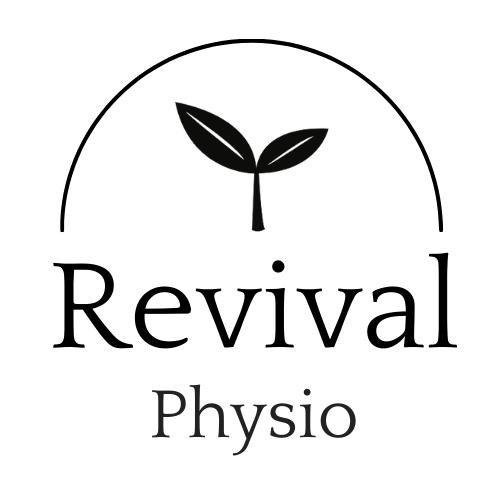Pelvic Floor Physiotherapy in Leslieville
Expert Care for Pelvic Health
Do you leak when you cough or sneeze? Do you pee often?
Are your pregnant or postpartum?
Is sex painful?
Struggling with pelvic health issues?
Do you have painful periods?
Do you have ab separation?
Have been told to do Kegel exercises but not sure how to do them properly?
Pelvic floor physiotherapists have taken specialized training to assess and treat the pelvic floor muscles and surrounding fascia, joints, and ligaments of the lumbopelvic region.
Pelvic floor physiotherapy is an effective first line treatment for issues down there. Benefit from internal exams, pregnancy/postpartum care, and more.
What is the Pelvic Floor?
Think of the pelvic floor muscles as a hammock system. They connect from the front pubic bone to the tailbone, from sitz bone to sitz bone, and wrap around both the vaginal and rectal opening. They play a huge role in bladder/bowel function, sex, labour, and organ (bladder, uterus, rectum) support. An internal vaginal (female) or rectal (female or male) exam is the gold standard for assessing the muscles down there.
Pelvic Floor Physio: Why an Internal Exam?
Internal exams are optional, but highly recommended as it is the best way to assess the muscles down there. You will be asked to change out of your clothes from the bottom down and asked to drape yourself with a sheet. Once on the examination table, a pelvic floor exam will be performed via vaginal insertion with the use of two fingers that are gloved and lubricated (approximately 1-2 knuckles in). A rectal exam also may be performed with the use of 1 gloved finger for females if you are having rectal-specific issues and for all male pelvic floor assessments.
At Revival Physio, We Help You:
1. Take control of your pelvic health
Your pelvic health impacts so much more than you realize. From incontinence and painful sex to low back pain and digestive issues, unaddressed pelvic health concerns can diminish your quality of life. At Revival Physio, we take a holistic approach to help you regain control and improve your pelvic health through customized physical therapy.
2. Say goodbye to pelvic pain
If you suffer from pelvic pain - whether from childbirth, endometriosis, prostatitis or other conditions - we can help. Our pelvic physical therapists are experts at identifying the root cause of your pain and developing an individualized treatment plan to relieve your symptoms and restore function. Physical therapy focuses on strengthening your pelvic floor muscles and improving mobility to alleviate pain and discomfort.
3. Improve intimacy and sexual function
Struggling with sexual difficulties? Physical therapy can often resolve issues like painful intercourse, low libido and inability to reach orgasm caused by pelvic floor dysfunction. We'll assess your specific concerns and customize a plan to target tight or weak pelvic muscles, improve blood flow and nerve function, and enhance relaxation to restore sexual function and intimacy.
4. Regain bladder and bowel control
Incontinence does not have to be your "new normal." Our pelvic floor physical therapists specialize in treating urinary and fecal incontinence through techniques that strengthen your pelvic floor and improve muscle coordination. We'll create an individualized treatment plan using exercises, biofeedback and lifestyle changes to help you regain bladder and bowel control.
Pelvic Floor Physiotherapy Pathway of Care
-

1. Pelvic Floor Physio Assessment ($180/60min)
In this 60 minute assessment, the focus will be on gaining an understanding of your pelvic health concerns and goals. It will include both an external full-body assessment and internal pelvic floor assessment.
-
2. Pelvic Floor Physio Treatment ($115/30min, $145/45min or $175/60min)
A personalized pelvic health home program, involving kegel exercises aka pelvic floor exercises. May also be combined with both an external release of the external regions around the pelvis (lower abdomen, front/side/inner thighs, core, pelvic floor, or glut muscles) and/or internal pelvic floor release. Constant re-assessment to track progress.
-
3. Pelvic Health Prevention / Maintenance
Ways to prevent re-occurance or ways to properly manage the pelvic floor dysfunction will be discussed. This may include the use of home pelvic trainer/release tools such as kegel exercise devices, kegel weights, dilators, or pelvic wands alongside infrequent check-ins for pelvic floor physical therapy.
FAQs
-
frequently having to pee
peeing when you cough, run, jump or sneeze
pressure down there
pain with sex
constipation
bloating
burning pain when you pee
low back pain
tailbone pain
painful periods
-
Endometriosis
Vaginismus and Dyspareunia (pain with sex)
Dysmenorrhea (menstruation pain)
Post-prostatectomy
Interstital Cystitis
Chronic pelvic pain syndrome
Urinary/Bowel Incontinence
Overactive bladder
Pelvic organ prolapse
Vulvodynia
Irritable bowel syndrome
Hip/Low back pain
Women who are pregnant who want to learn how to optimal push/prepare for labour or optimally heal postpartum
Women who are postpartum and want to return to exercise safely
Diastasis Recti
-
Pregnancy and vaginal labour, especially if you had an episiotomy, large baby or significant tearing
Chronic constipation
Ageing
Chronic coughing
Heavy weight lifting
High impact exercise (e.g. jumping)
-
High levels of stress, fear or anxiety
Operating heavy machinery
Heavy weight-lifting
Doing too much pelvic floor strengthening exercises
Incorrectly exercising your pelvic floor
Sexual or birth trauma
Pelvic surgery
Pelvic infection
Posture posture or alignment imbalances
Shallow breathing
-
Not always. If you have tightness in the pelvic floor muscles, kegels can make your symptoms worse. This is why it is so important to have your pelvic floor muscles assessed by a pelvic floor physiotherapist first before you start doing kegel exercises.
-
Absolutely, as long as you are a resident of Ontario.
-
Yes I do, men also have pelvic floor muscles! For men, the internal portion of the exam involves a rectal exam.
-
I recommend coming in ideally anywhere between 20-22 weeks so that we have enough time to work on strength, mobility and release goals!
-
Between 20-30 weeks, we work getting your deep core strong to reduce ab separation risk, pelvic floor work, whole body alignment correction, flexibility and mobility goals
At 31 weeks we go over how to push: purple vs. J breath pushing
34 weeks: A 1 hour session with your partner going through how your partner can support you during labour, optimal birth positions, baby holding tips and perineal massage to help reduce the risk of high level tears
37 weeks: We go over a postpartum program for vaginal and/or c-section recovery
Schedule an Appointment with a Pelvic Floor Physiotherapist at Revival Physio






